JISC, the DPC and the UK Web Archiving Consortium Workshop
Venue: The British Library Conference Centre, London
- Full Conference Report [PDF 337KB]
- Presentations from the conference (see below)
- Conference report from Peter Webster and Jane Winters, Institute for Historical Research (external website)
- Conference report from Alexandra Eveleigh, West Yorkshire Archive Service (Ariadne)
- Conference report from Jonathan Clark's Blog
- Conference report from Marieke Guy
The web runs at risk. Our generation has witnessed a revolution in human communications on a trajectory with the origins of the written word and language itself. Early web pages have an historical importance with prehistoric cave paintings or proto-historic pressed clay ciphers. They are just as fragile. The ease of creation, editing and revising gives content a flexible immediacy: ensuring that sources are up to date and, with appropriate concern for interoperability, content can be folded seamlessly into any number of presentation layers. How can we carve a legacy from such complexity and volatility?
Key issues for long-term access and preservation remain unresolved. How can content creators make sure their creations are durable without impairing their flexibility? How does web-archiving relate to data-curation and traditional archiving? What constitutes an appropriate legacy from a web site? What audiences should web archives anticipate and what does this mean for selection, ingest and preservation? What will the web be like as an historical source, and what use will be made of archived web sites by future generations? How will they validate them? How will they cite them? What are our missing links? How can these be filled?
The challenges of web archiving have long been recognised and there are a number of tools and services that already offer – or purport to offer – long-term access to web content. But gaps remain in policy, expertise and implementation and the tools for web-harvesting need a clearer link between the technical needs of preservation services and the deferred needs of user communities.
Only by developing and strengthening the links between content creators, tools developers, preservation services and users can we hope to secure an enduring web.
Sponsored by the Digital Preservation Coalition (DPC) and the Joint Information Systems Committee (JISC) the six partners of the UK Web Archiving Consortium (British Library, National Library of Wales, JISC, Wellcome Library, The National Archives and the National Library of Scotland) are organising a joint workshop on the 21st July 2009 at the British Library Conference Centre, Euston Road, London.
This event will bring together key stakeholders – archive managers, preservation experts, national libraries, web archivists and content providers - for practical and focussed discussion on shared perspectives, requirements, problems and solutions. Formal presentations and case studies will be presented with an opportunity for posters and demonstrations of tools. The day will close with a plenary discussion and a follow up Report.
Who should come?
- Web editors and web site managers
- Web archivists
- Archive managers
- Digital preservation and curation specialists
- Researchers interested in the web as an historical resource
- Librarians and policy makers with interests in electronic legal deposit
Why should you come?
- Help to shape the UK’s web archiving agenda
- Learn from organisations currently preserving websites
- Share your preservation concerns and aspirations
- Understand new services and projects working in web archiving
- Anticipate the evolution of a rapidly changing field
- Contribute your web archiving expertise to the repository community
Programme
|
0900-09:30 |
Registration |
|
0930-09:40 |
Welcome & introduction |
|
Session 1: Setting the scene |
|
|
09:40-10:20 |
Keynote & questions [PDF 2.37MB] |
|
10:20-10:40 |
Web Archive and Citation Repository in One: DACHS [PDF 1.33MB] |
|
10:40-11.00 |
The future of researching the past of the Internet [PDF 7.02MB] |
|
11.00-11.30 |
Morning coffee break |
|
Session 2: Creation, capture & collection |
|
|
11.30-11.50 |
Web Archiving Tools: An Overview [PDF 554KB] |
|
11.50-12.10 |
Context and content: Delivering Coordinated UK Web Archive to User Communities [PDF 2.03MB] |
|
12.10-12.30 |
Capture and Continuity: Broken links and the UK Central Government Web Presence [PDF 1.45MB] |
|
12.30-12.45 |
Questions and discussion |
|
12.45-13.30 |
Lunch break and exhibition |
|
Session 3: Issues and approaches to long term preservation of web archives |
|
|
13.30-13.50 |
Diamonds in the Rough: Capturing and Preserving Online Content from Blogs [PDF 2.07MB] |
|
13.50-14.10 |
Beyond Harvest: Long Term Preservation of the UK Web Archive [PDF 577KB] |
|
14.10-14.30 |
From Web Page to Living Web Archive [PDF 9.55MB] |
|
14.30-14.50 |
Emulating access to the web 1.0 [PDF 3.05MB] |
|
14.50-15.00 |
Questions |
|
15.00-15.15 |
Afternoon tea break |
|
Session 4: Discussion and next steps |
|
|
15.15 – 15.40 |
What we want with web-archives; will we win? [PDF 1.07MB] |
|
15.40-16.40 |
Roundtable – all speakers in question time format |
|
16.40 - 16.45 |
Thanks and close |
Photographs
These photos are only a selection and are relatively low resolution: a full set and higher resolutions are available.
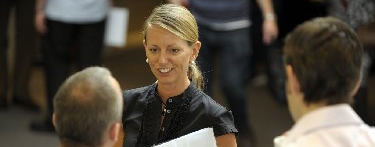
Carol Jackson, DPC
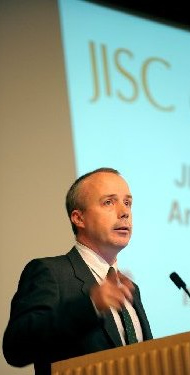
Neil Grindley, JISC
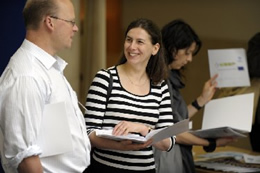
Registration
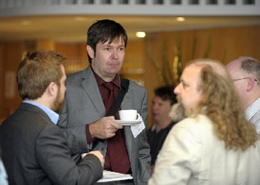
Richard Davis, ULCC
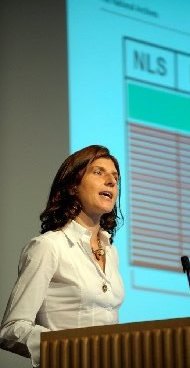
Cathy Smith, TNA
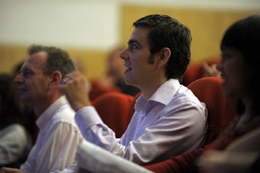
Jeffrey Van Der Hoeven, KB
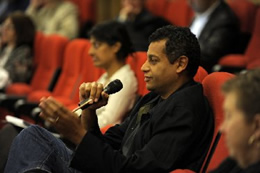
Question and Answer
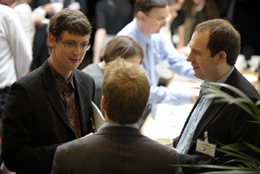
Discussion
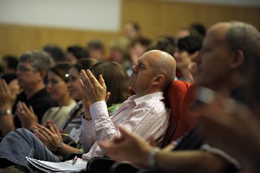
Question and Answer
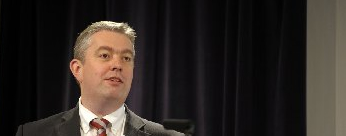
William Kilbride, DPC
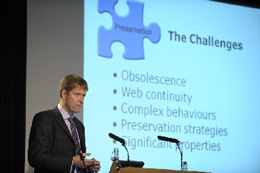
Adrian Brown, Parliamentary Archives

Audience
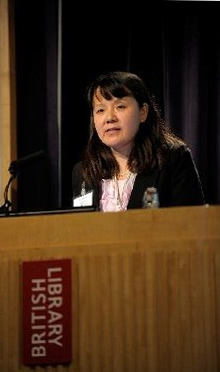
Helen Hockx-Yu, BL
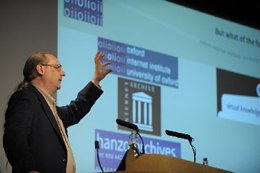
Eric Meyer, Oxford University
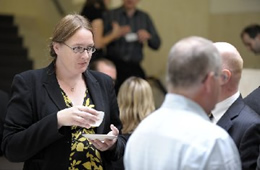
Maureen Pennock, BL
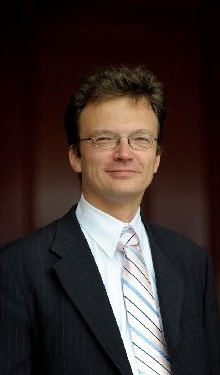
Thomas Risse, L3S Research Center
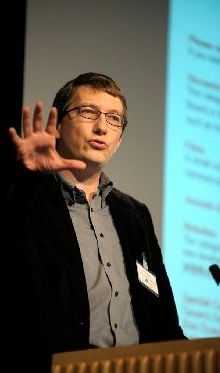
Hanno Lecher, Leiden University
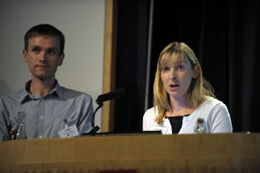
Amanda Spencer and Thomas Storrar, TNA
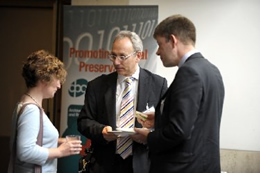
Discussion
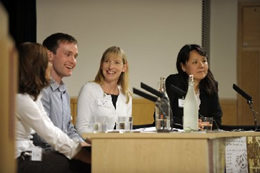
Question and Answer
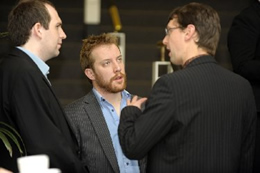
Discussion
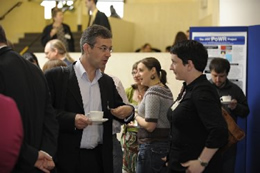
Discussion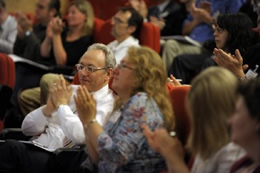
Audience







































































































































